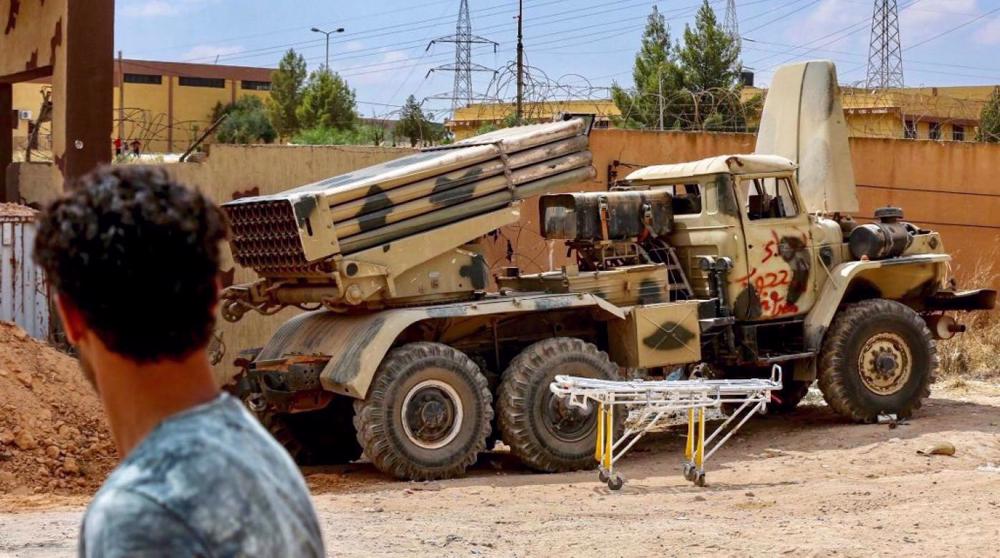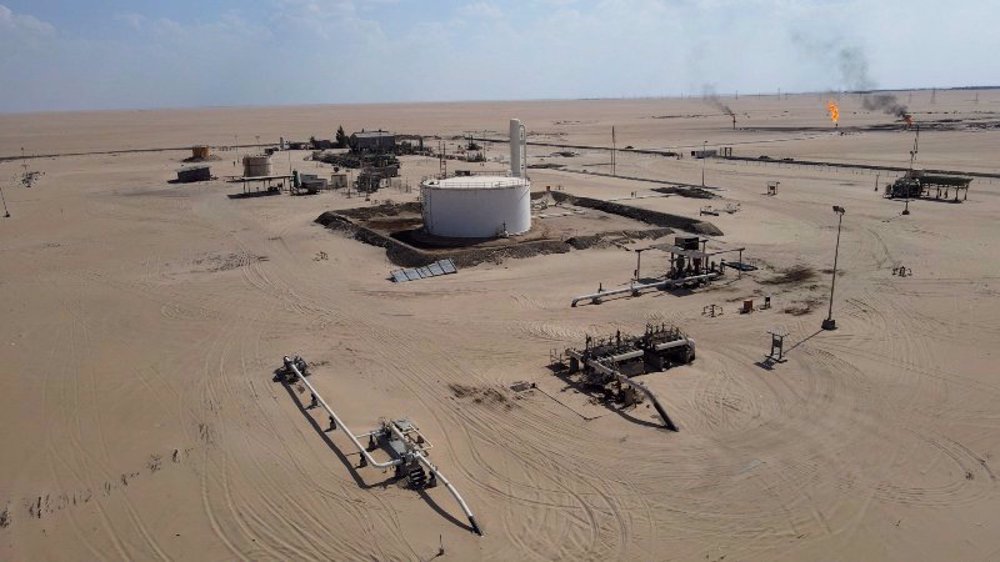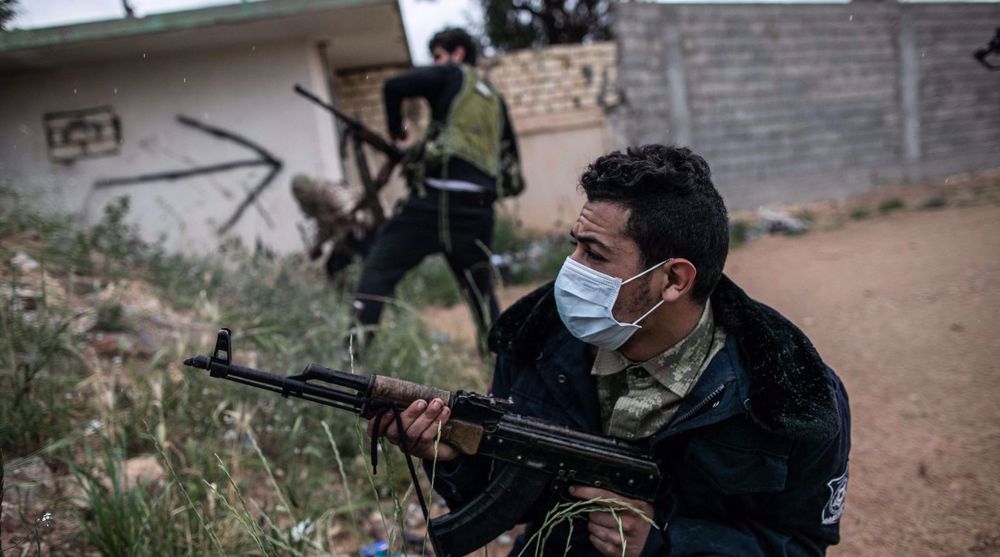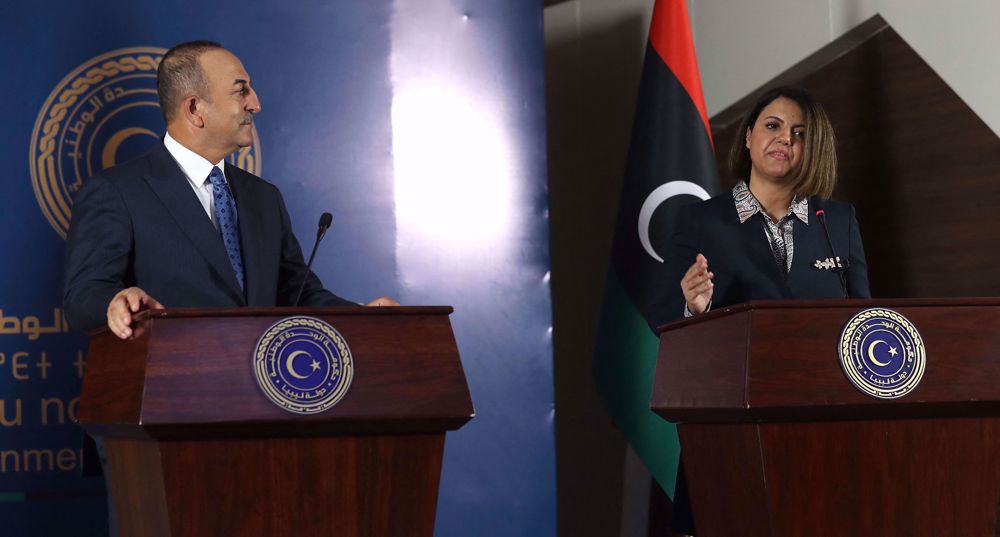Libya war criminals must be prosecuted in timely fashion: ICC
The International Criminal Court (ICC) says peace will not be achieved in Libya unless individuals suspected of crimes against humanity in the country are brought to justice in “a timely fashion.”
ICC Chief Prosecutor Fatou Bensouda on Monday welcomed the recent measures taken by Libya’s new interim government to bring peace and stability to the country but pointed to the crimes committed by armed groups and called for their prosecution at the ICC.
During a virtual meeting of the United Nations Security Council on Libya, Bensouda said that un-executed warrants of arrest for individuals suspected of crimes against humanity or war crimes delay the process of justice, undermine accountability, and ultimately prevent closure for victims.
The UN mediated a historic ceasefire agreement between the Libyan warring parties last October.
That agreement led to the formation of an interim unity government, led by Prime Minister Abdul Hamid Dbeibah.
The interim government will run the country until presidential and parliamentary elections on December 24.
Bensouda further called for the arrest of Mahmoud Mustafa Busayf al-Werfalli, a senior Libyan rebel loyal to the renegade commander Khalifa Haftar.
“The unwillingness of those in power in eastern Libya to transfer Mr. al-Werfalli to the Court… has contributed to a climate of impunity,” she said.
Werfalli has allegedly executed 43 civilians.
The Gambian prosecutor said that if confirmed, those murders constituted “a tragic example” of perpetrators escaping accountability for the most serious of crimes but “will not stop the ongoing investigation of the situation in Libya.”
Bensouda also called for the arrest of the “willful fugitive of justice” Said Gaddafi, the son of long-time dictator Muammar Gaddafi.
She said the arrest warrant for him was still outstanding and that, “Justice delayed is justice denied.”
Libya has been grappling with unchecked violence since the overthrow of former dictator Gaddafi in an uprising and a military intervention by NATO in 2011.
Since 2014, the country had been the scene of fighting between government forces and armed rebels. The conflict escalated into a regional proxy war fueled by foreign powers pouring weapons and mercenaries into the country.
Bensouda said that the court “has received concerning information about the activities of mercenaries and foreign fighters in Libya.”
“Crimes committed by mercenaries and foreign fighters on Libyan territory may fall under the jurisdiction of the court, no matter the nationality of the persons involved,” she said.
“We have collected credible information and evidence on serious crimes, allegedly committed in official and unofficial detention facilities in Libya,” the ICC prosecutor added.
According to the UN, some 8,850 people have been detained without due process in 28 official Libyan prisons while another 10,000 people, including women and children, are being held in other facilities controlled by armed factions.
The prosecutor also urged “all parties to the conflict in Libya to immediately put an end to the use of detention facilities to mistreat and commit crimes against civilians.”
The Libyan rebels are supported by the United Arab Emirates (UAE), Egypt, and Jordan. And the government forces are backed by Turkey.
According to the UN, some 20,000 foreign fighters, mainly troops from Turkey and mercenaries from Russia, Syria, Chad, and Sudan, are currently deployed in Libya.
Iranian diaspora in EU, UK deplore ban on national airline
VIDEO | Press TV's News Headlines
Israel’s military struggling with shortage of troops: Report
Iran calls for more efforts to establish peace in Gaza, Lebanon
Israel targets journalists in southern Lebanon to mask atrocities
Trump vs Harris: A choice between two deranged war hawks who cheer genocide in Gaza
Over 1,800 Palestinians killed in Israel’s month-long attacks in northern Gaza
UN official urges Egypt to seize Israel-bound arms ship MV Kathrin














 This makes it easy to access the Press TV website
This makes it easy to access the Press TV website